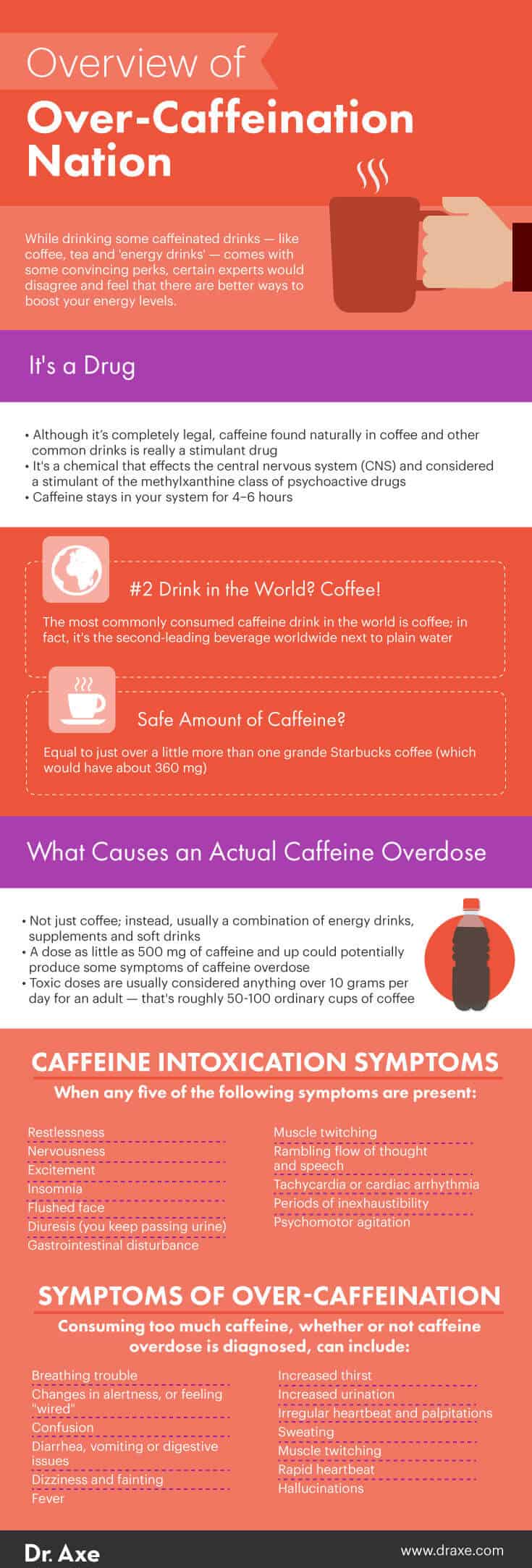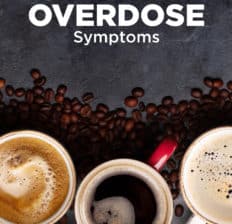This Dr. Axe content is medically reviewed or fact checked to ensure factually accurate information.
With strict editorial sourcing guidelines, we only link to academic research institutions, reputable media sites and, when research is available, medically peer-reviewed studies. Note that the numbers in parentheses (1, 2, etc.) are clickable links to these studies.
The information in our articles is NOT intended to replace a one-on-one relationship with a qualified health care professional and is not intended as medical advice.
This article is based on scientific evidence, written by experts and fact checked by our trained editorial staff. Note that the numbers in parentheses (1, 2, etc.) are clickable links to medically peer-reviewed studies.
Our team includes licensed nutritionists and dietitians, certified health education specialists, as well as certified strength and conditioning specialists, personal trainers and corrective exercise specialists. Our team aims to be not only thorough with its research, but also objective and unbiased.
The information in our articles is NOT intended to replace a one-on-one relationship with a qualified health care professional and is not intended as medical advice.
Are You Suffering from a Caffeine Overdose?
March 6, 2022

While the nutrition facts of coffee and other caffeinated drinks come with some convincing perks, certain experts disagree and feel that there are better ways to boost your energy levels — seeing as caffeine overdose can negatively impact health.
Caffeinated drinks — including tea, coffee and “energy drinks” — are all complex beverages containing hundreds of biologically active compounds, and the health effects of chronic caffeine intake can be wide-ranging depending on the individual.
Because caffeine can stay in your system for four to six hours (and potentially even longer for some people), it’s easy to overdo it at times and feel panicky, sick and anxious — all hallmark signs of caffeine overdose.
How much caffeine is too much? Let’s find out below.
What Is Caffeine? (Plus Sources)
Although it’s completely legal, caffeine found naturally in coffee and other common drinks is really a stimulant drug.
Caffeine is a chemical that affects the central nervous system. It’s considered a stimulant of the methylxanthine class of psychoactive drugs.
It elevates your heart rate, increases alertness, and changes the way your brain and body work in a number of ways — some that are beneficial but others that might be dangerous.
Sources:
According to the National Institutes of Health, caffeine can be found in:
- Certain soft drinks (including Pepsi, Coke, Mountain Dew)
- Certain teas (including black, white, green)
- Foods, including chocolate, hot chocolate drinks and dark chocolate
- Coffee and all coffee-containing drinks
- Some over-the-counter stimulants, like NoDoz, Vivarin, Caffedrine and others
- Some weight loss drugs or performance-enhancing “herbs”
- Kola nuts
- Coffee beans
The most commonly consumed caffeine drink in the world is coffee. In fact, it’s the second-leading beverage worldwide next to plain water!
Other caffeinated drinks include:
- 10 Hour Energy Shot: 422 milligrams
- McDonald’s 16-ounce Ice Coffee: 200 milligrams
- McDonald’s 16-ounce Ice Tea: 100 milligrams
- Coke, Pepsi, Dr. Pepper (or Diet Varieties) 12 ounce: 45 milligrams
- Mountain Dew Soda 12 ounce: 55 milligrams
- 5 Hour Energy Shot: 200 milligrams
- ACE Energy Drink: 160 milligrams
- AMP Energy Drink: 160 milligrams
- Monster Energy Drink: 160 milligrams
- Average Latte: 150 milligrams
- Lipton Black Tea: 55 milligrams
- Matcha Green Tea: 25–70 milligrams
- Starbucks Bottled Frappachino: 90 milligrams
- Starbucks 16 ounce Iced Espresso or Cappuccino: 225 milligrams
- Starbucks 16 ounce Decaf Coffee: 25 milligrams
- Chai Tea: 47 milligrams
- Black Tea: 42 milligrams
- Green Tea: 25 milligrams
- White, Jasmine, Oolong Tea: 25 milligrams
- Herbal Tea: 0 milligrams
Is caffeine found in any foods?
Chocolate naturally contains some, especially dark chocolate. Some new food items hitting the market also contain caffeine, such as energy bars, balls and similar items geared toward increasing focus.
Read ingredient labels if you’re concerned about your intake, and look out for cocoa, kola nuts, and caffeine or green tea extracts.
How Much Caffeine Is Too Much?
What qualifies as “excessive intake” of caffeine varies depending on whom you ask and the person’s individual tolerance. For example, when it comes to coffee, some sources define it as drinking more than eight to 10 eight-ounce cups in one day, but for some people, much less than this can have similar effects.
A “moderate amount” of coffee for healthy adults that is correlated with health benefits maxes out at about 400 to 500 milligrams of caffeine per day, which is about five cups of home-brewed, regular coffee.
This “safe” amount of caffeine content is equal to just over a little more than one grande Starbucks coffee (which has about 360 milligrams).
For pregnant women, the amount of caffeine recommended or tolerated is less. Most experts recommend no more than 200 milligrams daily during pregnancy from drinks and foods combined.
How much caffeine does it take to become dangerous and possibly lead to caffeine overdose?
While it depends a lot on the person, a dose as little as 500 milligrams of caffeine and up could potentially produce some symptoms of caffeine overdose. Some people feel fine, or their perceived “normal,” drinking around 500 milligrams, while others feel sick and weak very quickly.
Caffeine is classified by the Food and Drug Administration as “generally recognized as safe.” Toxic doses are usually considered anything over 10 grams per day for an adult.
To put that into context, one cup of coffee contains 80–175 milligrams of caffeine depending on the bean and preparation method. Someone would need to have roughly 50–100 ordinary cups of coffee to reach a lethal dose and have a true caffeine overdose.
Caffeine Overdose Symptoms
According to the official DSM-5 Criteria, an official diagnosis of caffeine overdose (called “caffeine intoxication”) is made when any five of the following symptoms are present:
- restlessness
- nervousness
- excitement
- insomnia
- flushed face
- diuresis (you keep passing urine)
- gastrointestinal disturbance (upset tummy, diarrhea)
- muscle twitching
- rambling flow of thought and speech
- tachycardia or cardiac arrhythmia
- periods of inexhaustibility
- psychomotor agitation
Even if you don’t experience a caffeine overdose, just consuming small doss of caffeine can have negative effects. You know you’ve had too much if you feel dizzy, nervous and out of control.
Symptoms of consuming too much caffeine, whether or not caffeine overdose is diagnosed, can include:
- Breathing trouble
- Changes in alertness or feeling “wired”
- Confusion
- Diarrhea, vomiting or digestive issues
- Dizziness and fainting
- Fever
- Hallucinations
- Increased thirst
- Increased urination
- Irregular heartbeat and palpitations
- Sweating
- Muscle twitching
- Rapid heartbeat
Related: Top 5 Theobromine Benefits (Plus Side Effects, Supplements & More)
Causes and Risk Factors
In most cases, it’s not coffee that causes caffeine overdose, but rather a combination of energy drinks, supplements and soft drinks — plus coffee or tea, too.
For example, there have been a low number of fatalities related to caffeine overdose, some in fitness and health-seeking individuals taking supplements. It’s one of those all-too-common unhealthy ways to lose weight.
Side effects due to high caffeine consumption are most likely to be seen in people with a low tolerance due to anxiety, poor digestion, low immunity or heart problems.
If you suffer from ongoing stress and trouble with sleep, heart palpitations or nervousness, a natural remedy might be avoiding caffeine in addition to sugar and other stimulants.
Does Caffeine Have Any Benefits?
What does science tell us about the pros and cons of consuming caffeine? It seems to all come down to individual tolerance and how the caffeine is consumed.
Studies to date somewhat disagree about caffeine’s effect on blood pressure, brain activity, hormonal balance, blood sugar levels and overall mood.
Most research shows that consumption of coffee is a major source of dietary antioxidants, including polyphenols, and that it may inhibit disease-causing inflammation. Some evidence even suggests that caffeine has links with decreased all-cause mortality.
Additionally, higher caffeine intake can sometimes help promote weight loss and improve BMI and body fat reduction.
Others still caution that everybody reacts to coffee differently, and risks still need to be considered. This is especially true is someone is new to consuming caffeine, such as a teenager or child having food containing caffeine.
It’s well-known that too much caffeine can cause signs of a caffeine overdose like nervousness. It can also interfere with restful sleep.
Three or more cups per day can even negatively impact hormonal levels and seriously increase symptoms of PMS for some people. Some research shows drinking numerous cups daily might possibly increase the risk of miscarriage, abnormal pregnancy, anxiety, heart problems and blood sugar issues.
Risk, Side Effects and Complications of Too Much Caffeine
1. Has Addictive Qualities
Just like all drugs, caffeine is known to be addictive and is usually used for self-medication, with people altering how much they use based on their needs and built-up levels of tolerance.
If you’re a coffee drinker and have ever had to go a day or two without your normal “fix,” you know how tough this can be — both on your mind and body. If you have a feeling a bad caffeine habit contributes to your chronic stress and quality of life, it might be time to make a change.
Caffeine withdrawal is a serious, very real reaction to weaning yourself off of coffee and other caffeine-containing drinks. Withdrawal symptoms can include caffeine headaches, anxiety, irritability, trouble concentrating, fatigue, digestive issues and changes in appetite.
Over time, you’ll most likely need more and more caffeine to produce the same energizing effects since your brain and body naturally build up tolerance, which is one reason why some natural health practitioners don’t recommend it. Relying on caffeine for ongoing energy is dangerous because this can exacerbate or get in the way of treating adrenal fatigue and mask serious health issues.
2. Can Cause or Worsen Anxiety
Many people have experienced that caffeine consumption can worsen anxiety, and there’s solid evidence that this is a biological reaction in many people.
The side effects of excessive caffeine intake include:
- increased heart rate
- restlessness
- anxiety
- depression
- tremors
- difficulty sleeping
- excessive urination
- nausea
If you’re someone who already suffers from high stress levels and nervousness of any kind, you’re more susceptible to caffeine overdose and signs of caffeine’s ill effects.
Some studies have found that when comparing people with panic disorders and general anxiety to healthy subjects, those with existing higher anxiety levels experienced increases in symptoms, such as nervousness, fear, nausea, heart palpitations and tremors, after consuming caffeine. Some even said the effects were similar to how they felt during a panic attack.
3. Can Cause or Worsen Insomnia and Sleep-Related Problems
Can’t sleep? Because of its stimulating effects, caffeine is known to disrupt sleep and might make insomnia worse in people who are prone to sleep-related problems.
Even if you usually sleep well, caffeine might disrupt your body’s natural hormone levels and wake-sleep cycles that help promote restful sleep, such as potentially depleting serotonin and melatonin. As a result, you’re more likely to need caffeine to keep you going the next day.
Making changes to your diet and caffeine consumption can help overcome insomnia without drugs. Uust give yourself time to lower your intake somewhat gradually to minimize side effects.
4. Impacts Hormone Levels
Caffeine causes the adrenal glands to produce more epinephrine and norepinephrine, and over time, this might weaken the adrenals. If you’re someone who suffers from high stress levels, this is yet another reason why caffeine isn’t a good choice for you.
In early research and animal studies, caffeine has also been shown to elevate levels of testosterone and estradiol, which could potentially create hormonal imbalances and complications in some people. To balance hormones naturally, most people need to limit or eliminate caffeine, refined carbs and sugar.
5. Can Potentially Deplete Nutrients and Contribute to Dehydration
Caffeine is a diuretic, so you’ve probably noticed you have an increased need to urinate during the night if you drink caffeine later in the day (which can also negatively affect your sleep). While it’s no longer believed that coffee itself is necessarily very dehydrating, it’s still not as hydrating as drinking plain water or herbal tea — so if you sip coffee throughout the day, you’re less likely to drink what you really need.
In addition, caffeine might deplete levels of certain key nutrients, including B vitamins, vitamin C, potassium, magnesium, calcium and zinc.
6. Might Contribute to High Blood Pressure
It isn’t totally clear yet how caffeine impacts blood pressure levels, although this is one of the areas most studied in regard to caffeine’s effects on the body.
Some evidence shows that people who drink more caffeine on average have higher blood pressure levels than those who drink none or very little. Other research shows it might raise blood pressure only for a few minutes, or even hours, but doesn’t cause ongoing hypertensive disorders.
The level of caffeine in about two or three cups of coffee might also raise the risk for systolic blood pressure even in people who aren’t prone to having high blood pressure levels. Another viewpoint is that when someone consumes caffeine regularly, she actually begins to develop a tolerance to it, and as a result, caffeine doesn’t have a long-term effect on her blood pressure.
How you consume caffeine — for example, how you prepare coffee, specifically how much sugar and dairy are added — also makes a big difference. A 12-year study done by Harvard researchers of over 150,000 women published in 2005 in the Journal of American Medical Association found that drinking caffeinated drinks can increase the risk of high blood pressure.
Another very interesting finding was that the caffeine-high blood pressure relationship was not found to be true with coffee consumption, only caffeinated drinks like sodas. You can see why this raises another issue altogether of the effects of caffeine in combination with sugar on heart health.
To make things even more confusing, there’s also some potentially negative consequences of high doses of chlorogenic acid found in coffee. When consuming high levels, usually about twice what an average, moderate coffee drinker might obtain, it’s possible that homocysteine levels in the blood could go up.
Homocysteine is a nasty inflammatory molecule that is believed to be a risk factor for heart disease, heart attacks and strokes. The same effects can happen from drinking very high amounts of tea — for example, about two liters a day (which is unrealistic in most cases).
7. It’s Usually Combined with Sugar and Artificial Ingredients
The double-whammy effects of caffeine combined with sugar in sweetened coffee and energy drinks has an even bigger, negative impact on the body than caffeine alone. Even when the caffeine in coffee or energy and sports drinks itself isn’t an issue, the other high-sugar, processed ingredients definitely can be.
For example, most synthetic coffee creamers are full of processed ingredients, sugar, artificial sweeteners and chemicals. Other popular coffee companions like soy milk, which has become a common replacement for milk in lattes and other coffee drinks over the years, have their own set of issues.
Even regular dairy milk can cause negative reactions in many people — especially when it’s conventional, non-organic dairy from feedlot-raised cows. Using natural sweeteners and unsweetened coconut, almond or raw milk to cut coffee’s bitter taste is a much better idea.
And you already know to stay away from highly sugary sodas and energy drinks!
How to Treat/Prevent
For the best protection against side effects, stick to one to three cups of coffee/tea per day. Consuming caffeine with food can help reduce its effects and slow onset of symptoms, so if you’re sensitive to its effects, avoid having it on an empty stomach.
If you have trouble getting good sleep, which is crucial for balanced energy and ongoing health within nearly every system of the body, try cutting back on caffeinated drinks and having them no later than noon each day. You also can eliminate caffeine altogether.
While coffee is the No. 1 source of caffeine worldwide, remember that sugary energy drinks, most types of traditional tea, many sodas (like Coke), yerba maté, guarana, some herbal treatments and certain medications also contain caffeine.
Weight-loss aids and pain medications, like Excedrin, also usually have caffeine (sometimes even in high levels), so check ingredient labels carefully if you know you’re sensitive.
There’s even a small amount of caffeine in decaf coffee, although it’s usually a very low level and a much better choice if you’re prone to anxiety.
Don’t forget that caffeine is also found in all forms of real chocolate made from cacao. The darker the chocolate, the more caffeine it contains regardless of being a healthier, lower-sugar choice.
Tea and coffee are both more natural, unsweetened sources of caffeine — definitely better options than energy drinks or soda. To reduce your sugar and chemical intake while also lowering the caffeine you consume, give up your energy drinks!
Conclusion
- Caffeine is a stimulant chemical that affects the central nervous system. High caffeine intake can lead to many side effects, such as nervousness, indigestion, trouble sleeping, anxiety and heart palpitations.
- While they contain antioxidants, coffee and tea health benefits max out at 500 milligrams of caffeine per day, which is about five cups of home-brewed, regular coffee. To prevent side effects, limit yourself to one to three cups daily.
- You’ll also find caffeine in dark chocolate, energy drinks, some supplements and certain medications. Check the caffeine content of beverages and even foods you consume if you’re sensitive.
- Try to reduce the amount of sugar you add to caffeinated drinks. Avoid taking too much after noon to prevent sleep issues.



